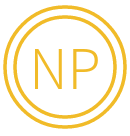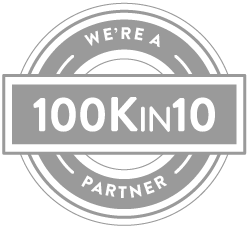Ready World? Here We Come!

Verified Non-Profit
$0
$200 goal

The Description
With these funds I will...purchase additional Kagan cooperative learning materials. (All materials are available on Amazon Prime.)
Along with many of the teachers from my school, I was able to attend a 4 day Kagan Cooperative Learning Summer Institute just before school started this year. We received training which will dramatically impact student learning. The strategies presented will help us transform our classrooms and school into a cooperative and caring learning community.
I am a special education teacher in grades 3rd - 5th, therefore, I work with students of varied ability levels. I have already used personal funds to purchase a 1-year membership in the Kagan Club, iPad apps, and activity books at the Kagan Summer Institute. The requested funding will be used to purchase additional Kagan cooperative learning materials. All materials are available on Amazon Prime.
-
Balanced Literacy (BSGBL2) – 3rd gr. $34.00
-
Vocabulary (BTV) - $29.00
-
Cooperative Learning & Grammar (BAMG2) - $29.00
-
Character Education Poster Set( PCE) - $17.00
-
Kagan Structures Primary Poster Set (PKSP) - $14.00
-
Write! Cooperative Learning & The Writing Processs (BDW) - $29.00
-
Balanced Literacy (BSGBL5) – 5th gr. $34.00
Rational/Need:
We are facing four major, interrelated crises in education, each of which is becoming more intense as the world changes. The four crises are: 1) The Achievement Crisis – Academic performance in the U.S. is failing compared to leading nations. 2) The Achievement Gap Crisis – Achievement outcomes are inequitable for different races and socioeconomic classes. 3) The Race Relations Crisis – Racial tensions and discrimination create roadblocks to social harmony and justice. 4) The Social Skills Crisis – Students lace essential character virtues and social skills.
If we do not change the way we teach, we will be less able to compete in the new global economy. Without positive change, more of the population will be relegated to lower achievement or dropout of the educational system. Without change, wef ace a breakdown in race relations, both in our classrooms and in society as a whole. Today’s students will be unprepared for the social skills and teamwork skills necessary to successfully participate in the work force of the 21st century.
As educators, we can have a direct positive impact on social character. Our teaching practices should change in ways that prepare our students for the interdependent world they will face. We should restructures our classrooms so that students experience situations in which it is adaptive to help. Students need an education that includes cooperation, not just competition and isolation. Many of today’s classrooms create negative race relations, poor achievement (especially for non-white students) and a social character ill-equipped to meet the demands of an increasingly social and economic world.
Today we cannot predict how our students will work. The accelerating change rate means many of our students will work at jobs we can only dimly imagine. We are not certain of the technical and academic skills they will need. We can be certain, though, they will need social skills, teamwork skills, and thinking skills as they deal with the increasingly complex interdependent work world of the future. Further, they will have to become lifelong learners. Half of what an engineer learns in school is outdated five years after graduation. And the half-life of knowledge is shrinking as technology is used to create new technology at an ever-increasing rate. Thus, our job as teachers has changed. Rather than filling our students with known facts and skills, increasingly we must see our job as fostering thinking skills as habits of mind and imbuing students with a love of learning. We are moving away from the traditional, control oriented view of the function of school and away from the empty vessel view of students. We are moving towards a vision of school as the place where we foster maximum growth of the unique potential of each individual.
Kagan’s cooperative learning structures align our present day practice with that vision. Although we couldn’t begin to know all the tools students will need for success, there are foundations upon which we can begin to ensure they experience success, like teamwork skills, thinking skills, and effective communication skills—all of which are built into the Kagan Cooperative Learning structures.
With over 59 essential Kagan Structures to choose from, I can design activities to achieve many different educational objectives. Some are designed for teambuilding, classbuilding, communication, mastery of basic knowledge or skills, or to help develop thinking skills. Other structures are for social skills, decision making, processing information, presenting information, and procedural learning.
Given the opportunity to interact with their classmates in positive ways, students will engage in cooperative teamwork several times daily. Given this social support system, students will work cooperatively with their teammates. Students will quickly appreciate the importance of teamwork, since Together Everyone Achieves More! My students, regardless of socioeconomic background, ability level, or race deserve the same opportunities as others around the United States.
Back Up Plan
I will purchase...
some, instead of all of the Kagan materials requested.
About the Creator






Add a Comment